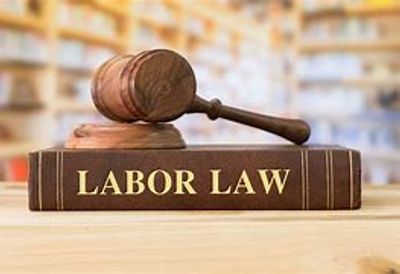CA Supreme Court expounds on term “hours worked”: Employee’s time spent on employer’s premises awaiting and undergoing an employer-mandated security check is compensable.

Diligent employers always want to ensure that their employees are fairly paid for their time worked. Thus, it is crucial to stay up-to-date on the scope of the term “hours worked” under the various wage orders, especially when the state’s highest court weighs in. “Hours worked” is defined as “the time during which an employee is subject to the control of an employer and includes all the time the employee is suffered or permitted to work, whether or not required to do so.” Note that all 15 of the wage orders in effect at the time contain the same definition of “hours worked” with the exception of IWC wage order Nos. 4–89 and 5–89, which have additional language.
The two clauses of the “hours worked” definition — the control clause and the suffered or permitted to work clause — “establish ‘independent factors, each of which defines whether certain time spent is compensable as “hours worked.” In other words, an employee who is subject to the control of an employer does not have to be working during that time to be compensated under the applicable wage order. On the other hand, an employee who is suffered or permitted to work does not have to be under the employer’s control to be compensated, provided the employer has or should have knowledge of the employee’s work.
The latest case in this realm involves Wage Order 16 governing wages, hours, and working conditions in the construction, drilling, logging, and mining industries. The following questions were posed to the California Supreme Court in the recent decision, Huerta v. CSI Electrical Contractors:
1) Is time spent on an employer’s premises in a personal vehicle and waiting to scan an identification badge, have security guards peer into the vehicle, and then exit a Security Gate compensable as “hours worked” within the meaning of…Wage Order No. 16?
2) Is time spent on the employer’s premises in a personal vehicle, driving between the Security Gate and the employee parking lots, while subject to certain rules from the employer, compensable as “hours worked” or as “employer-mandated travel” within the meaning of…Wage Order No. 16?
3) Is time spent on the employer’s premises, when workers are prohibited from leaving but not required to engage in employer-mandated activities, compensable as “hours worked” within the meaning of…Wage Order No. 16, or under California Labor Code Section 1194, when that time was designated as an unpaid ‘meal period’ under a qualifying collective bargaining agreement?
The following were the high court’s respective answers:
1) An employee’s time spent on an employer’s premises awaiting and undergoing an employer-mandated exit procedure that includes the employer’s visual inspection of the employee’s personal vehicle is compensable as “hours worked” within the meaning of Wage Order No. 16, section 2(J).
- Under the element of employer control mentioned above, the worker was subject to the employer’s control “while awaiting, and during,” the exit security procedure even though he was in his personal vehicle during that time.
2) The time that an employee spends traveling between the Security Gate and the employee parking lots is compensable as “employer-mandated travel” under Wage Order No. 16, section 5(A) if the Security Gate was the first location where the employee’s presence was required for an employment-related reason other than the practical necessity of accessing the worksite. Separately, this travel time is not compensable as “hours worked” because an employer’s imposition of ordinary workplace rules on employees during their drive to the worksite in a personal vehicle does not create the requisite level of employer control.
3) When an employee is covered by a collective bargaining agreement that complies with Labor Code section 512, subdivision (e) and Wage Order No. 16, section 10(E), and provides the employee with an “unpaid meal period,” that time is nonetheless compensable under the wage order as “hours worked” if the employer prohibits the employee from leaving the employer’s premises or a designated area during the meal period and if this prohibition prevents the employee from engaging in otherwise feasible personal activities. An employee may bring an action under Labor Code section 1194 to enforce the wage order and recover unpaid wages for that time.
It is important for employers to recognize that if that crucial element of control is present, this may be considered “hours worked” even if the employee is not actively working. If there is any uncertainty as to what comprises “hours worked,” please contact Rosasco Law Group to set things straight. We are here to make sure your workplace operates professionally and effectively at every step of the way.




